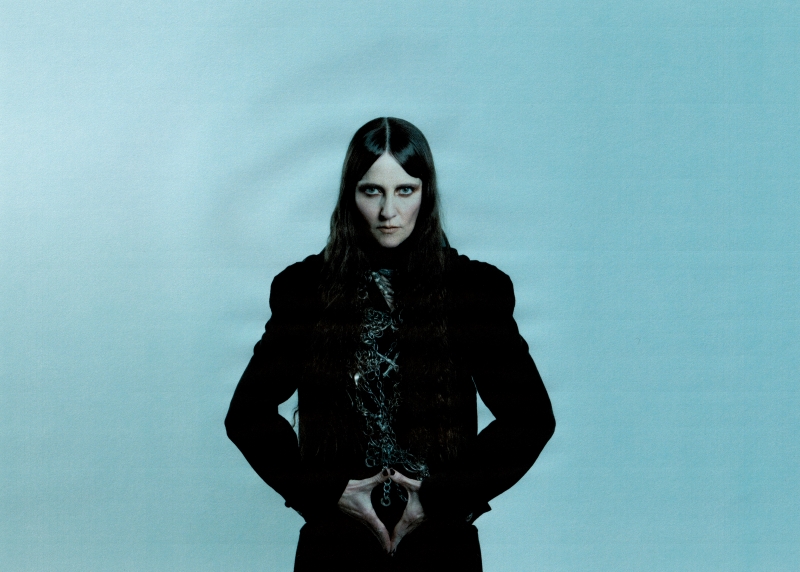Penelope Trappes emerges from isolation with a powerful new chapter in her musical journey, signing a fresh record deal with One Little Independent Records. Her new album, A Requiem, is a raw, spiritual journey—astonishingly vulnerable, and a compelling examination of loss: the threat of it, the meaning of it, and the coming to terms with it. In this special interview, we delve into this artist’s new era.
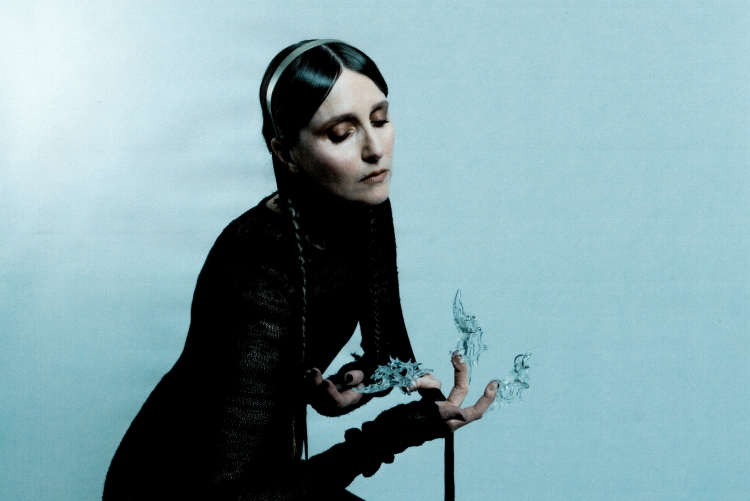
Hello Penelope, welcome back to Femme Metal Webzine. How are you and how is this period treating you?
Well thank you for having me back, it’s a pleasure. This period’s been, well it’s been really interesting. It’s busy, but it’s also slightly cruise control busy, like because the campaign—well, the campaign—the announcement for this album was at the end of last year. So it’s quite a long process, but I’m kind of enjoying that. It’s not too stressful. It’s busy but tolerable.
The signing with One Little Independent Records
I wanted to ask you about the signing with One Little Independent Records because the last time I spoke with you was with Houndstooth.
Yes. So it’s a bigger structure right now. It was a real blessing. I felt very thankful to be welcomed into their family.
My Houndstooth days were amazing too. They’re really lovely people. I had finished my time there—I was out of contract—so I was free to go wherever I wanted. It turned out that One Little Independent were fans, which honestly thrilled me. So yeah, it just felt like a perfect match.
The Houndstooth experience
What do you carry with you from the Houndstooth experience? You had your team there, and honestly, some of the best fans ever—let me put it that way.
We’re still really good friends. But I guess, in life, we all want to keep expanding and growing. Houndstooth is a small operation, and I had the chance to move to a slightly bigger family—one with the capacity and the hope that my music could reach more people
Penelope Trappes producing “A Requiem”
Now, let’s talk about “A Requiem”. How was producing it for you, Penelope? I know it’s a really important album for you. On one hand, you’ve just signed with a new label. On the other, you’re releasing another significant album. You’ve just closed a cycle with “Penelope One”, “Penelope Two”, and “Penelope Three”, and now you’re opening a new chapter.
So it’s a lot of things happening all at once—yeah. “A Requiem“ is almost, but not quite, like Penelope Four. I was just saying this today: it feels like a culmination of “Penelope One”, “Penelope Two”, and “Penelope Three”. But at the same time, it carries this deeper sense of personal liberation—something that comes from recognizing our basic mortality. Everything in life is born, lives, and eventually dies. That idea of seasonal change applies to humans too. So the album is a culmination like you said—everything converging at once. But it’s also a kind of rebirth, a new life stage I’m stepping into.
Penelope Trappes producing “A Requiem” part 2
But I’m also at the same time in that light and bright sense of hope is stuff from my past and family stuff, which always seems it has been. I do try to think that I’d like to think that in the future I won’t be so family epigenetics. I might just write about the environment or something completely unrelated.
My parents are older, and I wrote this album with that in mind—acknowledging that part of my life. My family in Australia, and the land I come from, still feel like home—but not quite anymore. At the same time, I’m settled and happy living in the UK. I have this new family, this new chapter unfolding. So I’m navigating both goodbyes and hellos all at once.
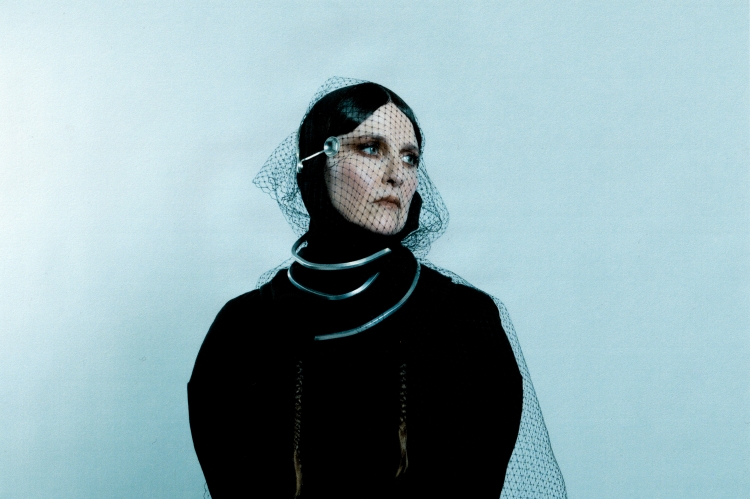
Acknowledging your struggles
Yeah, I feel a lot of what you are saying right now. It’s like not saying goodbye, but if I return to my land, the place of my elders, and my parents, I don’t feel it anymore.
So it’s a bit of a struggle too. It’s a bit like you feel you’re letting them down or like it’s just and I think you’re feeling it, which means so many people around the world must have the same feeling displaced from the land that you’re connected to, whether it’s ancestrally or where you were raised. And I think it’s really good to acknowledge that it’s okay to find. It takes years to understand that though.
“all part of the broader process of life”
Yeah. Everybody has their manner. You do it through words and music. Someone else may do it through therapy, for example.
Yeah. Whether it’s through the work you do—you could be a lawyer or work in a hotel—whatever the job is, it’s all part of the broader process of life. And I have no judgment toward people who stay in the town they were born in. I think that’s amazing. When I meet people like that, I’m just like, wow—because my mind could never do that. I always knew I was going to travel. But now, I do feel settled. I also have ancestral ties to the United Kingdom and Ireland, so I’m trying to connect more deeply with that part of myself.
Writing “A Requiem” in isolation
I also read that you wrote this album in isolation—you went to Scotland, rented a place, and just stayed there. So yeah, it was house-sitting, and they happened to have a music studio, right? I was wondering—and this might sound like a silly question—but what’s it like to be completely isolated from the world in a time when we’re constantly bombarded by things, especially through our phones? I tried to picture myself in that situation when I read about it, and honestly, I don’t know if I could do it. My parents are always trying to reach me, you know?
Yeah, well, I suppose there’s isolation—and then there’s isolation. In this case, I took myself out of my familiar environment, out of all my routines. It wasn’t like going on holiday—I knew exactly what I was there to do. It was a point of focus. I had months to prepare for it, and I knew it was coming, so my mind was set on the task at hand.
That said, I didn’t spend all day in the studio from nine to nine. I kind of went with the flow of each day. When the creative mood comes, it comes—and you can’t force it. But I made a point to go to the studio every day. Each day, I’d light a candle and set up a space that felt sacred, almost like a form of meditation. That ritual helped me quiet my busy mind—my monkey mind—so I could focus. Because until I can find that stillness, I can’t open the channel for the creative flow to happen.
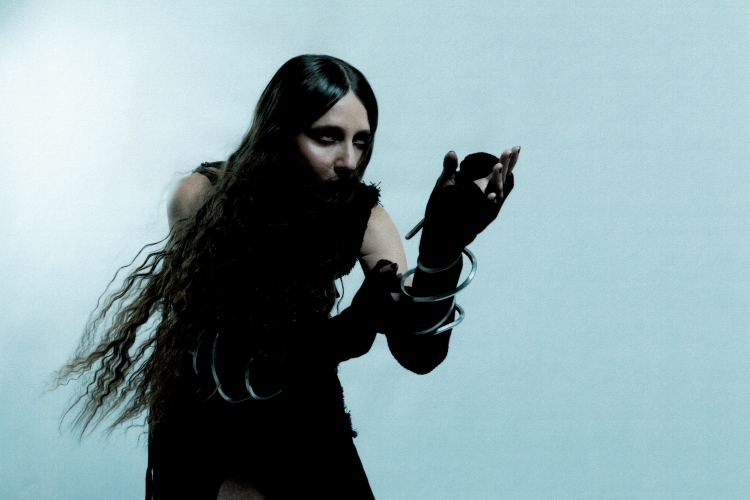
Reflection and assessment for Penelope Trappes
Well, these days, it’s something that… it’s a lot to manage. But I have to congratulate you, Penelope, for actually pulling that off. I think you also went through a period of reflection while working on this album
Hmm. Yeah. I suppose, like you said, therapy for some, music for others. Like for me, creating is a point where, yeah, it can be reflection and assessment of where you are in life and your goals and what’s going on around you, you know, stuff like that.
“I like to think of it as a living funeral”
I remember the last time we spoke, it was about “Penelope Three”, and that album was focused on self-feeling and life. This time, you’ve described “A Requiem” as a musical service in honor of the dead. So, where does the whole self-feeling and life you explored in “Penelope Three” fit into “A Requiem”? How does “Penelope Three” evolve into “A Requiem”?
Yeah, I like to think of it as a living funeral, in a way. For many years, I’ve believed that to truly live life to the fullest, we have to honor the dead—or at least acknowledge our eventual death. Living with that awareness makes you more conscious of the preciousness of life. So with “Penelope One”, “Penelope Two“, and “Penelope Three”, there was a lot of processing of things I had been through.
And it’s always been about light and shadow, you know? There’s a lot of shadow work and self-analysis. I’m a Virgo, so I get really into dream analysis, asking myself, ‘Why am I here? How did this come to be?’ And as I get older, with mature parents, I start to realize that you have to make the most of everything.
But I do feel like and as I said, I’ve slightly joked that it’s almost like a Requiem is connected to the trilogy.
Continuing the collaboration with Agnes Haus
Another important connection to the trilogy is Agnes Haus, who collaborates with you again. I remember she was in charge of the photography for “Penelope Three”. This time, she’s also contributed additional production to tracks 2 and 6—”Platinum” and “Red Dove”. So, I’d love to know: what role did Agnes play in “A Requiem” this time?
We have a hive mind when it comes to creating visuals. When I write lyrics, I often get strong visuals that come from dreams I’ve had. For example, with “Red Dove”, which they co-produced, there’s an added layer of magic they bring. I like to say they sprinkle a little extra something over the work, like with arpeggiators—it’s like, ‘Oh, yeah, that’s nice.’
Sometimes, since I’m self-taught, my capacity is limited, so I rely on clear communication. They understand my vision, and they’re always happy to add their magic. This time, though, the art credits and photos are by Gisele Renault.
The artwork for “A Requiem”
I wanted to ask you what it’s like to collaborate with them in bringing the whole visual project to life. I saw the artwork, where you’re sitting among flowers and holding one in your hand, and I love it. It’s such a strong message. The cover is powerful.
Well, it was about taking something from an outside realm and bringing it into a studio space, essentially recreating an imaginary world. One could try to pull that off in nature, but it would be quite tricky. So it’s like manipulating nature to make it seem as real as if I were there.
In the photo, I’m seated on living moss that I brought from a local plant shop. The flowers are from the pond in my backyard, which I’m very lucky to have. I’ve been keeping an eye on those flowers, almost talking to them, saying, ‘I think you’re coming with me.’ It turned out that the white lily, which I used, is often the flower of choice for funerals.
I wanted to capture this gothic, romantic, melancholic mood—though ‘sad’ feels too diminished a word. It’s more about mystical grief, a kind of mystical grief.
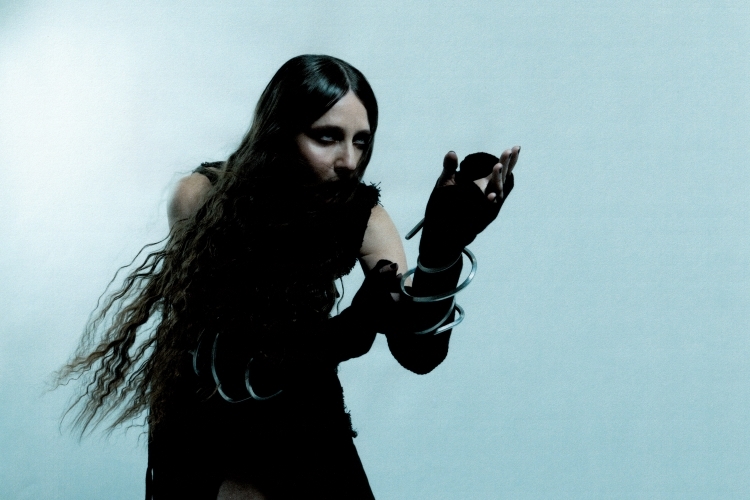
” it’s about reminiscence…”
I like it because it’s not completely sad, but it’s also about reminiscence, you know?
Yeah, that’s exactly how I feel. When I look at the cover artwork, it’s about reminiscence. It’s not entirely sad—it is sad, but not in a way that’s just about loss. It’s more contrasting, you know? There’s something bittersweet about it.
It was also really cool to work with a different photographer this time. Jason Renard is amazing—he was a great collaborator. The whole team was wonderful to work with. It was a really beautiful experience.
Upcoming tour for Penelope Trappes
I’ve been checking out your live dates, and I see you’ve got a few shows in London, plus stops in Belgium and the Netherlands, and then back to the UK. Are you planning something bigger, like a full tour? I know you’ll play Roadburn Festival, which is an amazing event. Are you looking forward to bringing this album to Europe—maybe to clubs or even more intimate venues like chapels?
This run of six dates in April, and May is a mix. I’m so excited to be playing Roadburn. I kind of, dreamt of that being the perfect spot for taking the show. I have a cellist and an organ player joining me on stage. So there’ll be the three of us. I believe Agnes Haus will join us on tour to do live visuals as well, which will be super exciting.
And then it’s kind of like, yeah, so Roadburn’s going to be like that moment, but then London’s in a chapel. There’s also Manchester’s in a chapel. So I quite like playing in church environments, like turning them into something else.
But in venues or clubs, it’s sort of interesting. But for this run of dates, it will be with the band. And after that, I might, you know, I won’t always have the band with me.
So it’ll be sort of explorations of, probably start to experiment with how it comes off live as an onstage. Okay. Well, quite theatrical too.
The next challenge for Penelope Trappes
The challenge will be bringing the cellist, the organ, and the live visuals into a chapel in Italy, especially considering how protective they are of these spaces. They’re not exactly eager to offer their chapels for concerts.
I’m curious about that too, because it’s the perfect environment for this setup. But yeah, places like Spain and Italy will be quite challenging if you want to perform there. I think it really depends on the church—certain more traditional ones, especially Catholic churches, are strictly places of worship and aren’t open to hosting concerts But I believe that music is a form of worship. Completely agree. And other churches agree too. So, if I can’t get into a church in Spain or Italy, maybe a forest could work instead—it’s kind of like a natural chapel, in a way.
So, Penelope, I want to thank you for your time. I hope you enjoyed the interview, and I look forward to seeing you in the Netherlands after Roadburn.
I hope to see you next time, whether it’s in a consecrated chapel or a club. Thank you so much for doing this, and I appreciate you taking the time.
